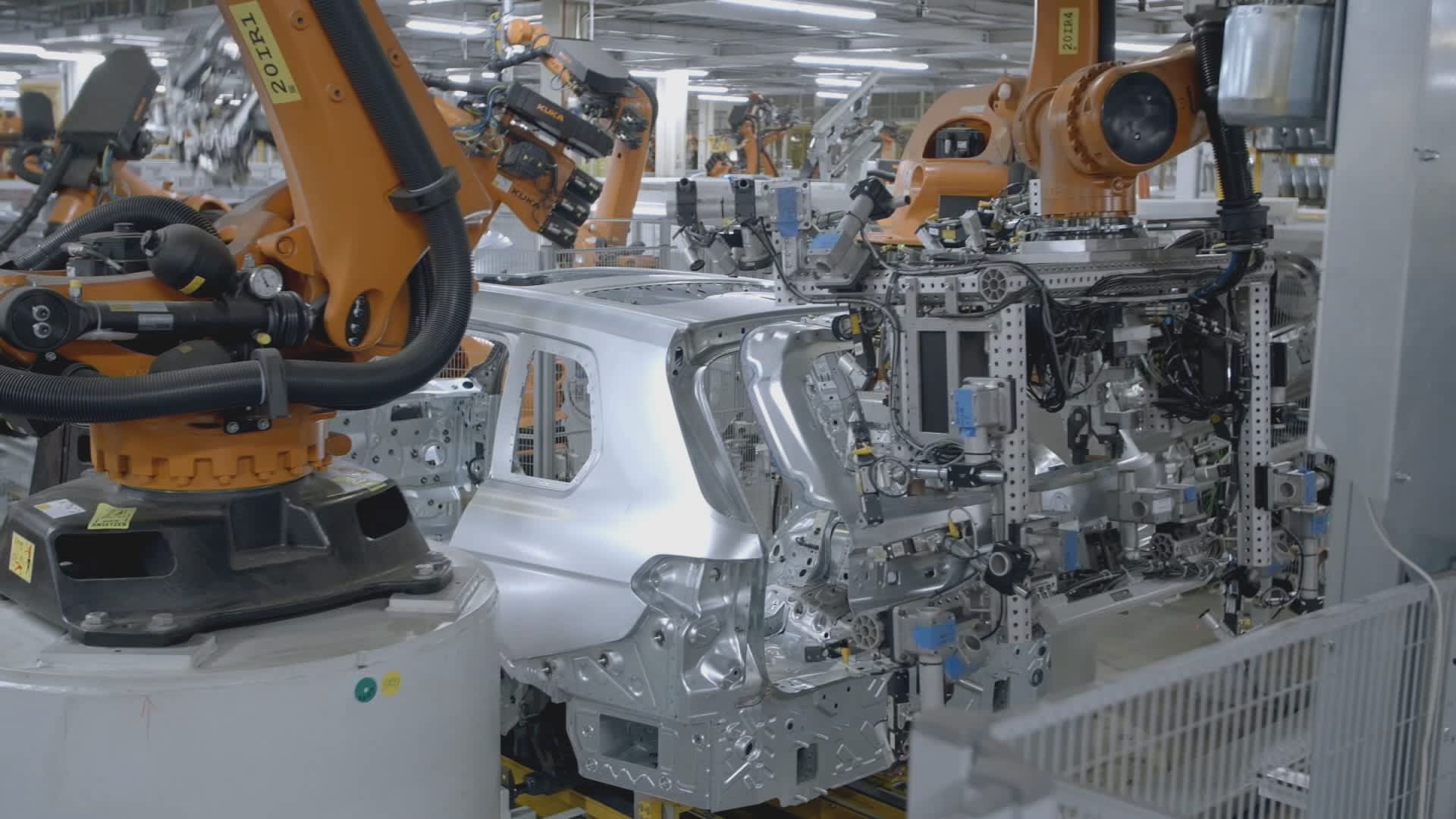Artificial intelligence (AI) is revolutionizing the automotive industry, and its impact goes beyond just self-driving cars. According to Future Market Insights, revenue from autonomous vehicles sales is projected to exceed $70 billion by 2033. However, AI technology is already being integrated into vehicle production processes.
Recognizing this industry-wide trend, the BMW Group is embracing AI to create a more streamlined and efficient manufacturing process. The company has upgraded its Spartanburg plant in South Carolina with new AI capabilities. This expansive factory spans over 8 million square feet and is responsible for manufacturing 60% of all BMWs sold in the U.S., amounting to more than 1,500 vehicles produced daily.
Within the plant, AI-powered robots in the body shop weld 300 to 400 metal studs onto the frame of each SUV. This translates to half a million studs applied by machines each day, all managed by AI technology. The AI system ensures precise placement of each stud, automatically correcting any misplacements without the need for human intervention.
Curtis Tingle, BMW Group Manager, describes this process as a “fully closed loop,” as AI removes the need for human thinking and manual intervention. The implementation of AI has led to a significant improvement in efficiency, achieving five times more than what was previously thought possible.
The BMW Group’s AI stud correction laser has already resulted in annual savings of over $1 million, according to Tingle. Additionally, BMW has been able to redeploy six workers from the line to other positions within the factory. The patent-pending AI technology was developed internally at the Spartanburg plant.
On the factory floor, AI software enhances BMW’s inspection process. As SUVs move down the line, 26 cameras capture images of various aspects. The AI system analyzes these images, identifying any issues and notifying human workers for resolution. This ensures that no imperfect vehicles are shipped out, preventing quality control problems.
Before the integration of AI, human workers were unable to inspect every vehicle to the extent that is now possible. With the help of AI, production numbers can meet global demand without sacrificing quality. The vice president of logistics and production control, Oliver Bilstein, highlights the potential for further AI advancements at BMW. Workers at the plant utilize factory scanner devices that capture measurements and high-resolution images, creating a digital twin of the facility. This allows for real-time adjustments and understanding of production changes before they are implemented. BMW factory planners worldwide can access these detailed plans online.
Thanks to AI software, the scanning process now takes days rather than months. In the future, AI technology is expected to learn and recommend new ways to optimize BMW’s automated assembly line independently. The continuous integration of AI into BMW Group’s manufacturing processes demonstrates their commitment to innovation and efficiency.
Denial of responsibility! VigourTimes is an automatic aggregator of Global media. In each content, the hyperlink to the primary source is specified. All trademarks belong to their rightful owners, and all materials to their authors. For any complaint, please reach us at – [email protected]. We will take necessary action within 24 hours.


